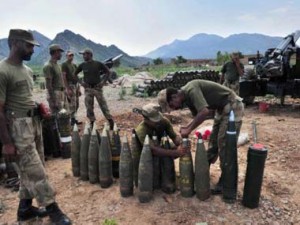During a period when European colonialism was met with armed
resistance, Algerian-born French writer Albert Camus’ suggestion that an
Arab colonialism replace the French one was controversial. From a
different angle, the idea of replacing one system with another is now
legitimate after the Arab Spring. The differences in the comparison are
considerable, but the point is the same: revolting nations are not
interested in exchanging their dictators for Gulf-funded governments the
way colonialism was replaced with authoritarian states.
In a past post, I spoke of the new Qatar being a mysterious country funding political Islam in the region after the Arab Spring. Several readers were bothered by the questions asked, but did not note that the whole idea of the post was to raise questions about a closed country turning revolutions into political and economic investments, its tools being a media network, an ambiguous foreign policy, and huge projects that seem too massive and unnecessary.
Qatar’s role has been underestimated, but now, its dominance is a reality that can no longer be ignored.
For decades, the Wahabi project in Saudi Arabia has been the subject of academic focus. The role of the kingdom is evident in funding Islamist movements and supporting regimes that do not clash with their interests. The Palestinian Authority, the Bahraini regime, and Yemen’s former president Saleh are a few of the many benefactors of the Saudi project.
The birth of Qatar as a regional power does has produced a power struggle with Saudi Arabia, with Qatar seen as an intimidating force in the manner of Iran.
With sectarianism successfully taking hold in the Gulf after the Bahraini revolution, Iran was portrayed as possessing grand powers. Saudi Arabia was never going to give importance to its opponent, but now that a ‘foreign monster’ is needed to keep the people silent, Iran is depicted as being all-powerful.
On the other hand, Iran is making use of this image to keep the focus away from the voices speaking out against a theocratic dictatorship. Qatar, however, is playing wisely with both opponents.
In a past post, I spoke of the new Qatar being a mysterious country funding political Islam in the region after the Arab Spring. Several readers were bothered by the questions asked, but did not note that the whole idea of the post was to raise questions about a closed country turning revolutions into political and economic investments, its tools being a media network, an ambiguous foreign policy, and huge projects that seem too massive and unnecessary.
Qatar’s role has been underestimated, but now, its dominance is a reality that can no longer be ignored.
For decades, the Wahabi project in Saudi Arabia has been the subject of academic focus. The role of the kingdom is evident in funding Islamist movements and supporting regimes that do not clash with their interests. The Palestinian Authority, the Bahraini regime, and Yemen’s former president Saleh are a few of the many benefactors of the Saudi project.
The birth of Qatar as a regional power does has produced a power struggle with Saudi Arabia, with Qatar seen as an intimidating force in the manner of Iran.
With sectarianism successfully taking hold in the Gulf after the Bahraini revolution, Iran was portrayed as possessing grand powers. Saudi Arabia was never going to give importance to its opponent, but now that a ‘foreign monster’ is needed to keep the people silent, Iran is depicted as being all-powerful.
On the other hand, Iran is making use of this image to keep the focus away from the voices speaking out against a theocratic dictatorship. Qatar, however, is playing wisely with both opponents.






























